On paper, Richard Thompson's career seems every bit as exotic as one of his songs: At the age of 18 he helped found folk-rock pioneers, Fairport Convention. Later, in the Seventies, he and wife Linda recorded several successful records together before retreating to a Sufi Muslim commune.
After returning to music, Thompson relocated to LA, where his unique combination of British folk and virtuoso rock guitar made him a connoisseurs' choice. In recent years Thompson has curated South Bank’s Meltdown festival, been awarded an OBE, and had a Grammy-nominated record. Yet he remains the quintessence of an understated Englishman.

I meet him in a slightly scruffy bar in a London hotel to discuss his latest album, Still. He is wearing his trademark baseball cap, patterned blue shirt, shorts and sandals. It’s the hottest day of the year, and he’s taking no chances. He shakes my hand like a friendly and wise uncle. I feel I know him already.
Thompson proves so unassuming we soon fall into easy conversation. Even before I unpack my notebook he is laughing and chatting in his quiet well-spoken voice. Over the next 40 minutes he proves every bit as thoughtful and perceptive an observer of life as his records suggest – especially on the subject of his own work. But first, being just a couple of days after Glastonbury, I wonder what he made of this year's festival?
RUSS COFFEY: Were you able to catch any of Glastonbury over the weekend?
RICHARD THOMPSON: Unfortunately I wasn’t in the country at that point but I’ve heard interesting reports. Lionel Richie, I hear, had a great gig! But, apparently some of the audience didn’t like Kanye because they thought he was being a bit blasé, a bit clever and not connecting with them.
I like Kanye’s lyrics and attitude but I hate electronic music and I hate drum machines. They drive me crazy. If Kanye performed with a tabla player or a real drummer, had real musicians on stage, I’d be much happier. But I hate electronic music…with a few exceptions. There have been great pioneers of electronic music, but a lot that’s derived from them just tires my ears.
Your new album Still is apparently something like your 22nd. Does it take increasing effort on your part to come up with new ideas?
Some records you get a little stuck on, but this went very smoothlyYou have to consciously try not to repeat yourself, but, inevitably you do. So you do have to look for new ways of saying stuff, new rhythms, and melodic structures. I don’t have a specific routine; I think things just occur to me. But I work at it as well.
The actual creative process is hard to talk about. I think a lot of songs start as ideas, such as “I’d love to write a song about x” or “I’ve got this great guitar riff, I’d really like to build a song around it”; or, “I’ve got this last line of a song, I wonder if I could work backwards”.
This album was produced by Wilco’s Jeff Tweedy. How did that come about?
We’d done the odd show with Wilco over the last 20-odd years and then last year we did the Americanarama tour with them, along with Dylan and My Morning Jacket. That’s when we got to know the band better. We jammed with them some nights, and I got to play with their guitarist Nels Cline. At some point it occurred to us that Jeff [Wilco's lead singer] would be a great producer. We’d also heard his Mavis Staples record and thought if he could do that for Mavis, he could take the same approach for us.
He’s just a really nice guy, a sweet guy. One of the reasons you bring another set of ears into a project is because you’re too familiar with your own processes. I could have done it myself, but it’s nice to have someone else come in and say, “How about making that song just a little shorter or just try putting the key up a bit, it might suit your voice better”. That sort of thing is great to have – if you can afford it.
We only had a nine-day window because of our mutual schedules, so we had to be well prepared. I usually am anyway. My trio rehearsed beforehand, and we had a second guitar player, Jim Elkington, who was very fast at learning stuff. We didn’t have a lot of takes. Some records you get a little stuck on, but this went very smoothly.
Some of the songs, like “Beatnik Walking” and “Guitar Heroes”, are more directly autobiographical than we are used to. Why was that?
Yeah, there a few like that on the record. I think I have always written in a mixture of styles. Sometimes I fictionalise a situation I have been in to give it more remove. And other songs are about people I know, situations I know, political situations, social injustice, etc.
Then there are songs that come out of the blue, where I just start writing and then wonder where it came from. “Josephine” on this album, for instance, is just fiction. I don’t really know what it’s about. I hope I can find out over the next couple of years.
“Beatnik Walking” refers to an actual tour of Holland we did 22 years ago in the early Nineties. It was just an idyllic time when we were in Amsterdam for three weeks, commuting to gigs in the afternoon. We would stroll around the city and have lunch in this nice café by the side of the canal, and then head off to work at about 2pm. My youngest son was then four months old and in a backpack – that’s the line “I’ve got a papoose on my back”. There are all kinds of slightly cryptic personal references but Anne Frank’s house is in there. Rembrandt and Van Gogh too.
Richard Thompson plays "Beatnik Walking" on US radio
Over the years your songs have been marked by their vivid cast of characters. Do you start with an idea and then invent a character to illustrate or do you meet real people and get inspired by them?
It’s really both. Some characters are absolutely based on real people and you really feel you want to say something about them, or you want to place this character in a fictional setting, and see what happens. Other people are fictional figures. The characters in “1952 Vincent Black Lightning” [an RT classic] are fictional, I suppose, in a sense because it’s all about the bike. The bike is the centre of the song, the lodestone that sucks everybody in.
There’s a kind of Richard Thompson universe that people go into when they put on one of your records – a world of vagabonds and rural England – and yet you’re a north London lad relocated to LA. Where does it all come from?
It’s really an internal landscape. I think it’s important for a writer to have that. There might be more predictable clichés in, say, a Johnny Cash internal landscape, but when anyone writes a song they have figures acting out in this particular world. For me, it’s often the world of my childhood. It’s going back to the 1960’s.
Richard Thompson performs "Beeswing" live in Chico, California
It’s also people that I might have met. For instance in the song “Beeswing”, some of the world is from a tramp who used to come to my house when we lived in Suffolk. He would do a circuit, and come round maybe every six months, and he’d do some gardening for us. We’d put him up for a couple of nights, and wash his clothes and stuff. His stories about life on the road were unbelievable! He started out as an apprentice jockey and had these stories about the racing world. And his accounts of the people you meet on the road were just extraordinary. I kind of fish sliced some of those.
I’ve also read you say the song was part inspired by the lives of Anne Briggs and Vashti Bunyan?
That’s the other half of the song – putting those worlds together. Having talked to this old tramp, I kind of knew more about his world. So I could put this girl, a sort of Sixties drop-out from the city, going back to the country to get her head together. I could, sort of, throw her into this tramp’s world.
Do you find it easy to empathise with marginal characters? I’ve always found “God Loves a Drunk” very moving – and you must have written that after you stopped drinking.
It was absolutely painful and I described the way I felt about it as close as I couldBut I’ve been a drunk. I’ve done it. In that song I see drinking as replacing a spiritual part of you. The song says, “His shouts and his curses are just hymns and praises to kick-start his mind now and then”. It’s like you have to deaden that part of you or follow it. This kind of spiritual yearning... if you don’t pursue it then you have to kill it.
The range of emotion on the new album seems to be book-ended by “Broken Doll” and “Guitar Heroes". Can you tell me a little about these?
“Broken Doll” is another real story. This was a long time ago. It’s funny how things stay with you sometimes – things haunt you to the point where you have to deal with them or write something. This happened when I was about 19 years old and we were playing a concert somewhere in the Midlands and a girl, a mental patient, came to the show with her nurses. They thought it would be good for her to meet me. She had a kind of obsession, and they thought it would help to meet me in person. It was just a very difficult meeting. She was there but not there, as it were, and she had some physical issues as well. It was absolutely painful and I described the way I felt about it as close as I could.
And the lightest moment is “Guitar Heroes” where you have a bit of a laugh playing in the styles of Django Reinhardt and Les Paul. Is there a frustrated jazz player in you?
I don’t think I ever wanted to be a jazz player. I’m too aware of all the jokes about jazz players not having girlfriends and tending to be homeless! I really admire jazz players but I think I always really wanted to communicate differently. I was more interested in song, and being a songwriter and a singer. If I play the guitar then I am my accompanist. And if I take a solo then I am continuing the narrative of the song,
Speaking of that art of song writing, what do you think the whole 1000 Years of Popular Music project [stage show/ live album] taught you?
Any traditional ballad that’s been around for hundreds of years is pretty terse. The bad verses have been knocked out by generations of singers who have felt that this verse doesn’t really work. The bad lines have been changed. In some cases someone, maybe a schoolteacher, has looked at this song he’s heard down the pub and thought “I might just change that last verse just to improve it.” So it’s been improved and improved until you get to this thing whose every line is punchy and powerful. It’s all raw flesh, all the fat has been taken away.
Doing the Thousand Years show also made me appreciate the commonality through the ages: the fact that a love song is a love song and it’s still a love song, and a dance tune is a dance tune and a political song is a political song.
You are now one of the most critically acclaimed musicians of your generation. How do you keep creatively hungry when everyone is always telling you how good you are?
What other people think about you isn’t true. Good or bad. If people pillory you it’s not real. Still, I think as an artist you also need a little pat on the back: someone to say, “That’s not bad, you’re doing fine. Keep going”.
It reminds me of a story about Stanley Matthews’ dad. Stanley Matthews was a great footballer but to get praise out of his father was extremely difficult. He would only let it out in little dribs and drabs. Matthews wins the FA cup finalists medal but his dad just says, “Well done son." It’s not much but it keeps him going. But not too much that he becomes arrogant or self-centred. It’s like that you need a little bit of praise but too much does kill you. And too little kills you.
Speaking of offspring, in recent years your daughter Kami has joined your son Teddy in having a successful musical career. How do you feel about them joining you in the music business and how do you encourage them?
They’ve just done it anyway. I haven’t had to encourage them. Sometimes I say, “Stick at it, that’s really good”, but mostly their own enthusiasm has carried them, and I just try to tell them I’m proud of them, which I am and I’m glad I don’t need to make any excuses.
I do sometimes worry about the precariousness of the business, which us why I’ve never said this is family tradition – you’re going to be a musician. I’ve always said: finish school, finish that degree, because you never know, get that HGV licence just in case…
And then you all end up playing on an album called Family [a project by Teddy Thompson]!
 Well, yeah. But I think for Teddy he was always going to be a musician or an actor. He probably wouldn’t do so well at anything else. For Kami, she would do great at absolutely anything. She was a fantastic scholar, a great linguist, she could act, she could do a whole range of stuff. But she’s chosen music and I think that’s great and she’s doing great. I think every kid is different. Every kid has different needs, and needs different encouragement.
Well, yeah. But I think for Teddy he was always going to be a musician or an actor. He probably wouldn’t do so well at anything else. For Kami, she would do great at absolutely anything. She was a fantastic scholar, a great linguist, she could act, she could do a whole range of stuff. But she’s chosen music and I think that’s great and she’s doing great. I think every kid is different. Every kid has different needs, and needs different encouragement.
What’s your favourite cover of one of your songs?
I could be obscure and say “The Great Valerio” by Swan Arcade who were a three-piece traditional singing group who did a lot of sea shanties. They nailed the harmonies. The harmonies are quite difficult in this, and they took the song and very studiously learned them. It’s a fantastic piece of music. Or I could say something more mainstream like “Dimming of the Day” by Bonnie Raitt (see below).
What’s your favourite song of your own?
Well it changes every day. If I have a favourite song it won’t be my favourite for very long because I’ll play it a few times and I’ll get bored with it.
Are there any albums that you are now disappointed with? And how do you feel about Henry the Human Fly now [rumoured to be the worst selling record in Warner Bros Records history]?
There are many, many such albums! The ones I did for Chrysalis I am very disappointed with. First Light and Sunnyvista. They were just not good records. I was just not focused properly on making those records. And I was confused about what I was doing, about my role in music. I see them as half-hearted.
In many ways Henry the Human Fly was a very good record. I have always sworn that if I could go back and get the multi-track – which I can’t – I’d redo the vocals. The vocals are very, very poor. But it’s an interesting record. It’s got some great textures on it.
Richard Thompson and Bonnie Raitt perform "Dimming of the Day"
Last year you played with Yusuf/ Cat Stevens on his new album. How was that?
I’ve known Yusuf a long time. I knew his dad before I knew him. I used to eat in his dad’s restaurant in the West End. And I’ve probably known Yusuf since the Sixties. Not well. There’ve been years when I haven’t seen him. He’s a sweet man and I like him, and I think he’s a great musician.
Did you connect on a religious level [both artists are Muslim] or was that just incidental?
I think it’s a real connection. It’s something we talk about and appreciate about each other. Also, of course, there were about 15 other people on the record who weren’t particularly religious. I’m actually happy to see him back a bit more to the middle and to see himself as a musician. Because he is – it’s hard to deny that in yourself.
When I last saw Fairport Convention they seemed to be having an incredible laugh. Do you ever miss all the camaraderie?
 I miss Fairport! I miss the guys in the band. In the latter stages of my tenure, it was a very sociable band. We got on very well together – some drinking was involved!
I miss Fairport! I miss the guys in the band. In the latter stages of my tenure, it was a very sociable band. We got on very well together – some drinking was involved!
And it was a fun repertoire. There were serious songs as well, but the fact you could lighten the repertoire with these medleys of dance tunes was a huge lift for the audience. You could do a pretty serious ballad and then go into jigs and reels and change the mood very quickly.
Back then you were notoriously shy, do you still feel shy without a guitar? Do you think you could cope if you were told you couldn’t strap one on for six months?
I am not as shy as I used to be. Being on stage has done me a lot of good actually. So I can look people in the eye. I can stand at the front of the stage as opposed to the back. If I took six months off, I would miss the transaction with the audience. That’s the best part of being a musician – playing live, playing to people and you feel something has been communicated to the audience. Some transformation takes place. Music can be very magical stuff.
You’ve been wearing a hat and a beard for a long time – do you think there’s room for another look?
I hope so! I’m working on something quite different.
You’re touring here in September. Are you going to be able to stay and enjoy the Ashes [RT is a well-known cricket fan], or does LA beckon?
I’m going to miss most of the Ashes unfortunately. I’ve got festivals in Canada and stuff, so I will have to tune in online. I used to play a bit, in fact I still theoretically do. I’m going to miss this season, but I just bought a new bat so I must be feeling optimistic about my cricketing future.
Usually I’m over here for about six weeks in the summer, but this time I’m touring in September so I’m doing North American festivals. But being away does give me some perspective on England.
And living in LA also enables me to put lot of things in place. LA doesn’t impose itself on you. If I lived in New Orleans I’d have to embrace the culture because it’s so great. But LA doesn’t really have culture. And, of course, if I miss England, I have my laptop so I can always get the Guardian and Radio 4!



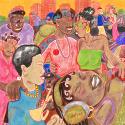
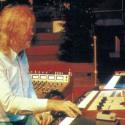
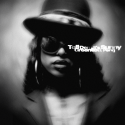
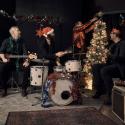
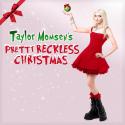
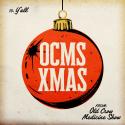






Add comment